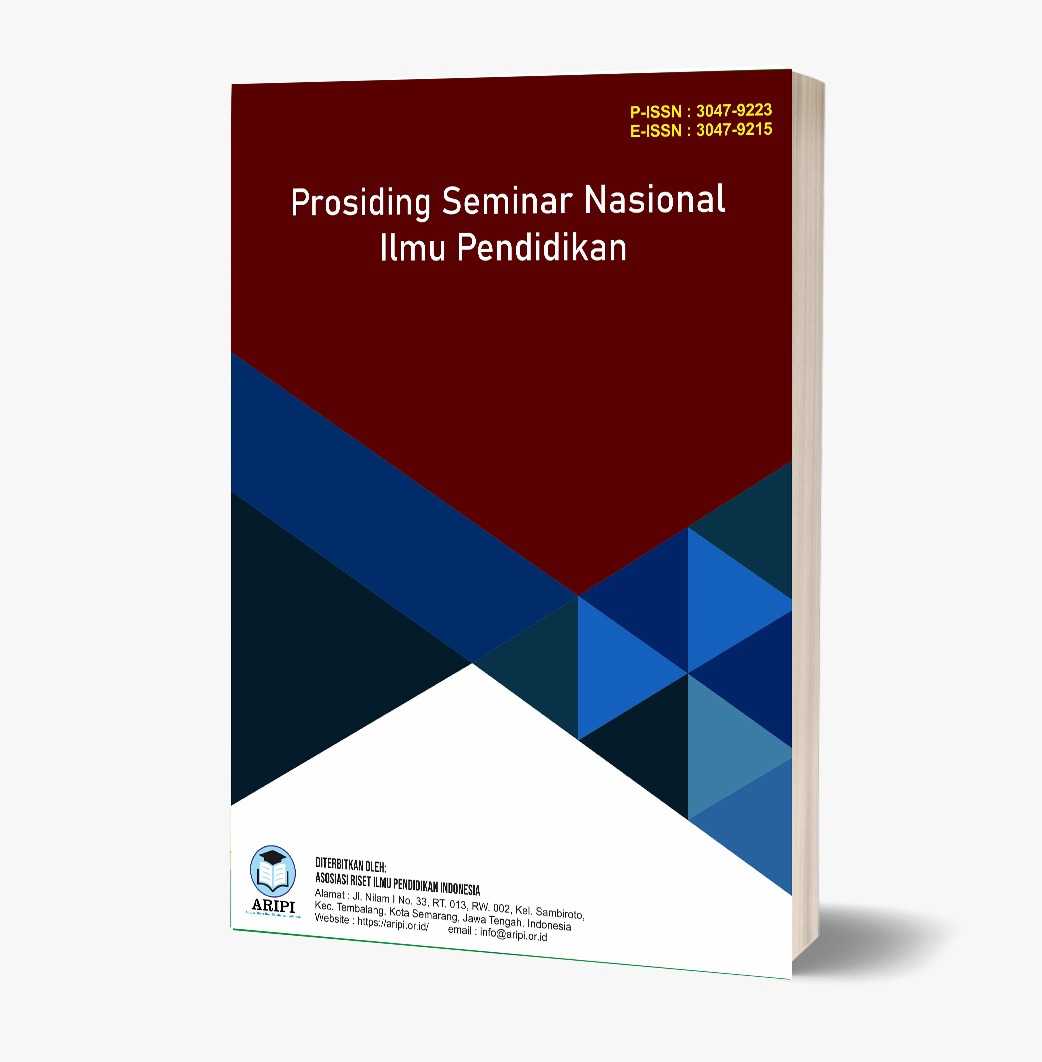Strategi Integrasi Energi Terbarukan Berbasis Smart Grid untuk Mewujudkan Sistem Energi Listrik yang Berkelanjutan di Indonesia
DOI:
https://doi.org/10.62951/prosemnasipi.v2i1.132Keywords:
Smart Grid, Renewable Energy, Energy Integration, Energy TransitionAbstract
Indonesia has abundant renewable energy potential, but its utilization still faces various technical, economic, social, and policy barriers. This article examines renewable energy integration strategies through a smart grid approach as a systemic solution to build a reliable, efficient and sustainable electricity system. Using a literature review method, it highlights key challenges such as intermittency of energy sources, limited storage infrastructure, high initial investment costs, and regulatory and social resistance. The integration strategies discussed include the development of energy storage technologies, increased flexibility of the electricity system, optimization of plant planning and operations, energy policy reform, and investment in infrastructure and digitalization. The vital role of smart grids is made clear through case studies of implementations in remote areas that have successfully improved distribution efficiency and community participation. The results confirm that successful integration of renewable energy requires synergy between technology, policy, and active community involvement. In conclusion, smart grid is not just a technological infrastructure, but the foundation of transformation towards a national energy system that is low-emission, inclusive, and long-term resilient.
References
Abdurohman. (2023). Tantangan investasi energi baru dan energi terbarukan menuju net zero emission. Info Singkat Komisi VII DPR RI, 15(11), 228.
Arifin, Z. (2020). Smart grid development in Indonesia (PLN).
Boubii, C., El Kafazi, I., Bannari, R., El Bhiri, B., Bossoufi, B., Kotb, H., AboRas, K. M., Emara, A., & Nasiri, B. (2024). Synergizing wind and solar power: An advanced control system for grid stability. Sustainability, 16(2), 815. https://doi.org/10.3390/su16020815
Financial Times. (2025). Indonesia’s ambition to quit coal hinges on policy reforms. https://www.ft.com/content/58e46243-7f2f-42f2-be92-5ba3b660c108
Ghazali, R., et al. (2025). Potential and challenges of renewable energy management: Socio-economic perspective in Indonesia.
Halimatussadiah, A., et al. (2024). Indonesia's barriers in renewable energy transition. Chicago Policy Review.
Hamoodi, S. A., Hamoodi, A. N., & Mohammed, R. A. (2024). Design and simulation of smart grid based on solar photovoltaic and wind turbine plants. Journal Européen des Systèmes Automatisés, 57(4), 953–961. https://doi.org/10.18280/jesa.570403
Hidayatullah, N. A., & Sudirman, D. E. J. (2017). Desain dan aplikasi Internet of Thing (IoT) untuk smart grid power system. VOLT: Jurnal Ilmiah Pendidikan Teknik Elektro, 2(1), 35–44. https://doi.org/10.30870/volt.v2i1.1347
Judijanto, L., Sulaiman, A., & Tahir, U. (2024a). The effect of smart grid implementation on the integration of new renewable energy in Indonesia's electricity system. West Science Nature and Technology, 2(4), 207–213. https://wsj.westscience-press.com/index.php/wsnt/article/view/164
Judijanto, L., Sulaiman, A., & Tahir, U. (2024b). The effect of smart grid implementation on the integration of new renewable energy in Indonesia's electricity system.
Kementerian Energi dan Sumber Daya Mineral Republik Indonesia. (2008, 24 Agustus). Potensi Energi Baru Terbarukan (EBT) Indonesia. https://www.esdm.go.id/id/media-center/arsip-berita/potensi-energi-baru-terbarukan-ebt-indonesia
Kementerian Energi dan Sumber Daya Mineral Republik Indonesia. (2021, 10 Februari). 25 sistem smart grid dibangun hingga 2024. https://www.esdm.go.id/id/media-center/arsip-berita/25-sistem-smart-grid-dibangun-hingga-2024
Kiasari, M., Ghaffari, M., & Aly, H. H. (2024). A comprehensive review of the current status of smart grid technologies for renewable energies integration and future trends: The role of machine learning and energy storage systems. Energies, 17(16), 4128. https://doi.org/10.3390/en17164128
Koohi-Fayegh, S., & Rosen, M. A. (2020). A review of renewable energy options, applications, facilitating technologies and recent developments. European Journal of Sustainable Development Research, 4(4), em0138. https://doi.org/10.29333/ejosdr/8432
Laanaoui, M., & Raghay, S. (2022). Enhancing OLSR protocol by an advanced greedy forwarding mechanism for VANET in smart cities. Smart Cities, 5(2), 650–667.
Meena, S. B., Patil, P. R., Kandharkar, S. R., Hemalatha, N., Khade, A., Dixit, K. K., & Chinthamu, N. (2023). The evolution of smart grid technologies: Integrating renewable energy sources, energy storage, and demand response systems for efficient energy distribution. Nanotechnology Perceptions, 19(1), 1–14.
Mohammed, O. M. (2021). Renewable energy: Sources, integration and application: Review article. Journal of Engineering Research and Reports, 20(12), 143–161. https://doi.org/10.9734/JERR/2021/v20i1217426
Nelly, Susanti, Radhiana, Fitriliana, Syamsuddin, N., & Marlina. (2024). Strategi mengintegrasikan energi terbarukan, inovasi teknologi, dan konservasi hutan sebagai pembangunan berkelanjutan di Indonesia. Jurnal Serambi Mekkah, 9(3), 9421–9429.
Nurahmani, A., & Yuda, M. A. S. (2024). Opportunities and challenges for new and renewable energy development in Indonesia: Towards net zero emission. International Journal of Research in Social Sciences, 3200–3212.
Pujiantara, M., Arifin, Z., Windarko, N. A., Anggriawan, D. O., Asfani, D. A., Briantoro, H., Triyono, N. A., & Hardimasyar, T. (2023). Smart grid pilot project evaluation and recommendations in Indonesia: Case study of Semau Island. In Proceedings of the 10th International Conference on Electrical Engineering, Computer Science and Informatics (EECSI 2023) (pp. 71–76). IEEE. https://doi.org/10.1109/EECSI59885.2023.10295695
Putra, B. R., & Rusgianto, S. (2023). Analysis of energy consumption and carbon emissions in Indonesia. Jurnal Ekonomi Pembangunan, 21(01), 31–45.
Sinaga, D. H., Sasue, R. R. O., & Hutahaean, H. D. (2021). Pemanfaatan energi terbarukan dengan menerapkan smart grid sebagai jaringan listrik masa depan. Journal Zetroem, 3(1), 11–17.
SIP Law Firm. (2025). Izin pengembangan energi terbarukan di Indonesia. https://siplawfirm.id/izin-pengembangan-energi-terbarukan-di-indonesia/
Vakulchuk, R., Chan, H. Y., Kresnawan, M. R., Merdekawati, M., Overland, I., Sagbakken, H. F., Suryadi, B., Utama, N. A., & Yurnaidi, Z. (2020). Indonesia: How to boost investment in renewable energy (Policy Brief No. 06/2020). Norwegian Institute of International Affairs & ASEAN Centre for Energy. http://dx.doi.org/10.13140/RG.2.2.11060.07047
Yusuf, M., & Resosudarmo, B. P. (2019). Ekonomi politik energi terbarukan: Peluang dan tantangan di Indonesia. Multiverse, 1382–1395.
Downloads
Published
How to Cite
Issue
Section
License
Copyright (c) 2025 Prosiding Seminar Nasional Ilmu Pendidikan

This work is licensed under a Creative Commons Attribution-ShareAlike 4.0 International License.







